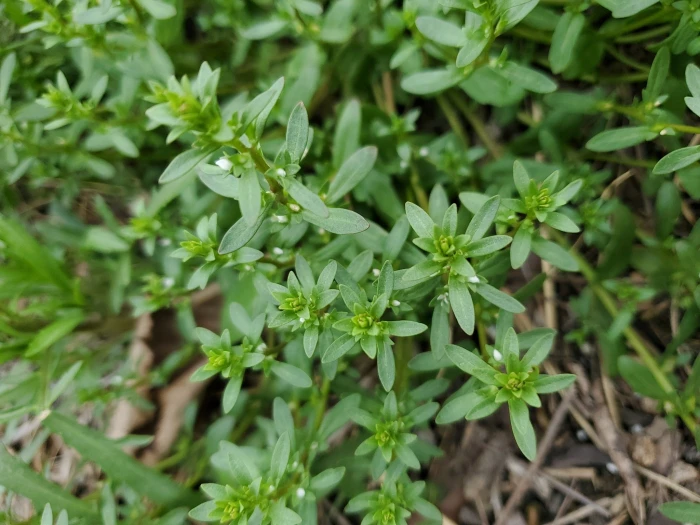Neckweed
/
(Veronica peregrina)
Neckweed (Veronica peregrina)
/

© kiwikki
CC BY-SA 4.0
Image By:
© kiwikki
Recorded By:
Copyright:
CC BY-SA 4.0
Copyright Notice:
Photo by: © kiwikki | License Type: CC BY-SA 4.0 | License URL: http://creativecommons.org/licenses/by-sa/4.0/ | Uploader: kiwikki | Publisher: iNaturalist |






















Summary
Veronica peregrina, commonly known as neckweed or American speedwell, is an annual herb that is native to a variety of habitats including moist fields, floodplains, and along stream banks in North and South America. It typically grows up to 12 inches tall with erect stems and bears small, lance-shaped to ovate leaves. The plant produces tiny white to pale blue flowers in the spring, which are not particularly showy but can add a subtle charm to garden settings.
American speedwell is valued for its adaptability to various soil conditions and its ability to thrive in both full sun and partial shade. It is often used in wildflower gardens, as a ground cover, or for naturalizing areas where low maintenance is desired. While it requires minimal care, it does prefer consistently moist soil. Gardeners should be aware that Veronica peregrina can self-seed prolifically and may become weedy in favorable conditions. It is also potentially invasive outside its native range, so it is important to consult local regulations before planting.CC BY-SA 4.0
American speedwell is valued for its adaptability to various soil conditions and its ability to thrive in both full sun and partial shade. It is often used in wildflower gardens, as a ground cover, or for naturalizing areas where low maintenance is desired. While it requires minimal care, it does prefer consistently moist soil. Gardeners should be aware that Veronica peregrina can self-seed prolifically and may become weedy in favorable conditions. It is also potentially invasive outside its native range, so it is important to consult local regulations before planting.CC BY-SA 4.0
Plant Description
- Plant Type: Herb
- Height: 0.5-1.5 feet
- Width: 0.5-1 feet
- Growth Rate: Rapid
- Flower Color: N/A
- Flowering Season: Spring, Summer
- Leaf Retention:
Growth Requirements
- Sun: Full Sun, Part Shade
- Drainage: Medium, Fast
Common Uses
Erosion Control, Low Maintenance, Potted Plant
Natural Habitat
Moist fields, floodplains, and stream banks in North and South America
Other Names
Common Names: Purslane Speedwell, Necklace Weed, Neckweed
Scientific Names: Veronica peregrina, Veronica carnosula, Veronica caroliniana, Veronica chillensis, Veronica laevis, Veronica marilandica, Veronica maximowicziana, Veronica pallescens, Veronica peregrina
GBIF Accepted Name: Veronica peregrina
